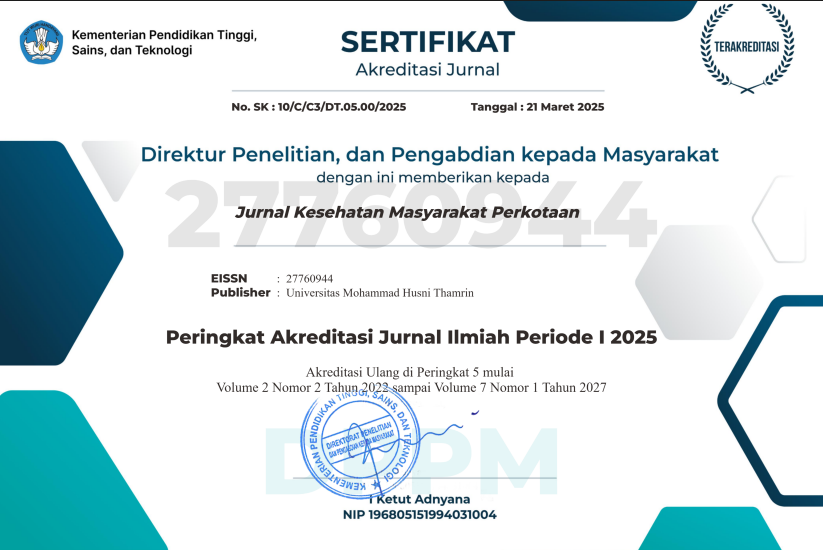Determinants of Intrauterine Device (IUD) Contraceptive Use Decision Among Acceptors at Pauh Public Health Center, Padang City, 2023
DOI:
https://doi.org/10.37012/jkmp.v5i1.2729Abstract
Introduction: The population of Indonesia increases significantly every year, based on BPS data (2022), in 2022 the population of Indonesia increased to 275.8 million people from 2021 which had reached 272.7 million people. Indonesia's increasing population growth is a serious challenge in national development, especially related to controlling the birth rate. One of the main strategies implemented is the Family Planning (KB) program. New participants in the family planning (KB) program tend to choose the injection contraceptive method over other types, resulting in an increase in the use of the injection method. On the other hand, the use of long-term contraceptive methods (MKJP), including Intrauterine Contraceptive Devices (IUDs), shows a downward trend over time (Ministry of Health of the Republic of Indonesia, 2021). The purpose of this study was to identify factors that influence decisions in the use of IUD contraception in the Pauh Health Center work area. Methods: This study used a quantitative approach with a cross-sectional design, involving 99 respondents selected through purposive sampling. Data were collected using a standardized questionnaire and analyzed using the Chi-Square statistical test. Results: Determinants of mothers' decisions to use IUDs significantly influence maternal knowledge (P Value 0.014), maternal attitudes (P Value = 0.000). support from husbands (P Value = 0.08). Family planning service facilities (P Value = 0.000). The conclusion is that the determinants of decisions to use IUDs are significantly influenced by knowledge, attitudes, husband's support and health service facilities.
Downloads
Published
How to Cite
Issue
Section
Citation Check
License
Copyright (c) 2025 Diyah Chadaryanti, Zulaika, Trisna B Widjayanti

This work is licensed under a Creative Commons Attribution 4.0 International License.
Jurnal Kesehatan Masyarakat Perkotaan allows readers to read, download, copy, distribute, print, search, or link to the full texts of its articles and allow readers to use them for any other lawful purpose. The journal allows the author(s) to hold the copyright without restrictions. Finally, the journal allows the author(s) to retain publishing rights without restrictions Authors are allowed to archive their submitted article in an open access repository Authors are allowed to archive the final published article in an open access repository with an acknowledgment of its initial publication in this journal.

Lisensi Creative Commons Atribusi 4.0 Internasional.











